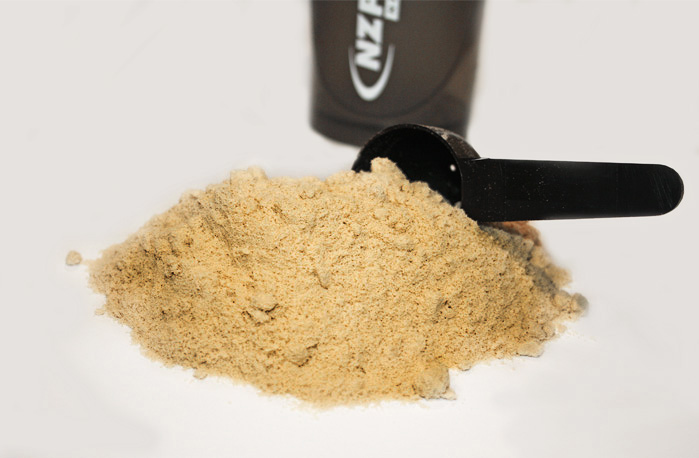
Maximizing Muscle Recovery: The Importance of Post-Exercise Protein Consumption
After a strenuous workout, your body undergoes significant stress and fatigue, depleting its energy stores and breaking down muscle tissues. To optimize your recovery and support muscle growth, it’s crucial to refuel your body with the right nutrients, with protein playing a central role. In this article, we delve into the importance of post-exercise protein consumption, focusing particularly on the benefits of fast-digesting protein immediately after intense physical activity.
The Significance of Timing
Research consistently highlights the importance of timing when it comes to post-exercise nutrition, especially protein intake. According to studies conducted by reputable institutions such as the National Institutes of Health (NIH), consuming protein within the first hour after exercise can significantly enhance muscle protein synthesis and promote faster recovery. This window of opportunity, often referred to as the "anabolic window," underscores the importance of providing your muscles with the necessary building blocks for repair and growth when they need it most.
Fast-Digesting Protein - a Game-Changer
Not all proteins are created equal, especially when it comes to post-workout recovery. Fast-digesting proteins, such as whey protein, have been shown to be particularly effective in stimulating muscle protein synthesis due to their rapid absorption rate. Research published in the Journal of the International Society of Sports Nutrition demonstrates that whey protein supplementation immediately after resistance exercise results in greater muscle protein synthesis compared to other protein sources. This makes it an ideal choice for post-exercise consumption, ensuring that your muscles receive a quick influx of amino acids to kickstart the recovery process.
The Role of Amino Acids
Amino acids are the building blocks of protein and play a crucial role in muscle repair and growth. Branched-chain amino acids (BCAAs), including leucine, isoleucine, and valine, are particularly important in this regard, as they are directly involved in the regulation of muscle protein synthesis. Studies cited by the American College of Sports Medicine (ACSM) highlight the importance of consuming adequate amounts of leucine-rich proteins, such as whey, to maximize the anabolic response post-exercise. By providing your body with a rich source of essential amino acids, fast-digesting proteins facilitate the replenishment of muscle glycogen stores and the repair of damaged muscle fibers, ensuring optimal recovery and adaptation to training stimuli.
Practical Recommendations
Incorporating fast-digesting protein into your post-exercise routine is relatively straightforward and can be tailored to individual preferences and dietary needs. Opt for protein sources such as whey protein shakes, Greek yogurt, or lean meats immediately following your workout to capitalize on the anabolic window. Aim for a serving containing approximately 20-30 grams of protein to provide your muscles with an ample supply of amino acids for recovery and repair. Additionally, consider pairing your protein source with carbohydrates to further enhance glycogen replenishment and facilitate nutrient delivery to muscle cells.
.jpg)
The Importance of Hydration
In addition to protein consumption, hydration plays a crucial role in post-exercise recovery. During exercise, the body loses fluids through sweat, leading to dehydration if not adequately replenished. Dehydration can impair muscle recovery and performance, so it's essential to prioritize fluid intake post-exercise. The American Council on Exercise (ACE) recommends consuming 16-24 ounces of fluid for every pound of body weight lost during exercise. Water is typically sufficient for rehydration in most cases, but for intense or prolonged workouts, sports drinks containing electrolytes can help replace lost minerals and enhance fluid absorption.

The Impact of Sleep and Rest
While nutrition and hydration are vital components of recovery, adequate sleep and rest are equally important for optimizing muscle repair and growth. During sleep, the body undergoes various physiological processes that promote tissue repair, hormone regulation, and immune function. Research published in the journal Sports Medicine emphasizes the critical role of sleep in post-exercise recovery, highlighting its impact on performance, cognitive function, and overall well-being. Aim for 7-9 hours of quality sleep per night, and prioritize relaxation techniques such as meditation or deep breathing to enhance recovery further.
Conclusion
In conclusion, post-exercise protein consumption is a critical component of any effective recovery strategy, particularly after intense physical activity. Fast-digesting proteins, such as whey protein, offer numerous advantages in terms of promoting muscle protein synthesis and accelerating recovery when consumed immediately after exercise. By prioritizing the timing and quality of your post-workout nutrition, staying hydrated, and ensuring adequate sleep and rest, you can optimize your gains, minimize muscle soreness, and propel your performance to new heights.
